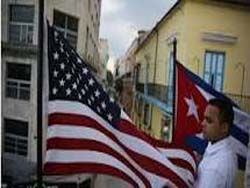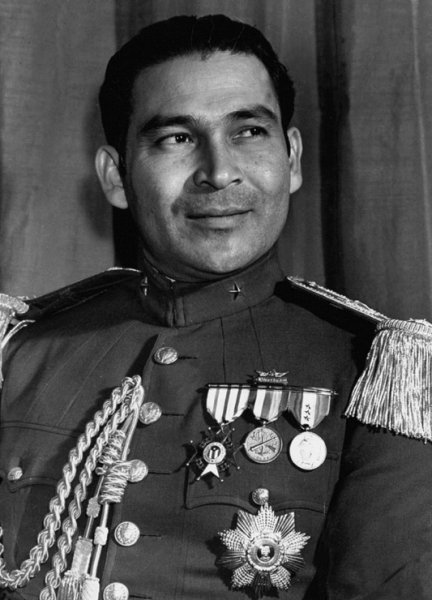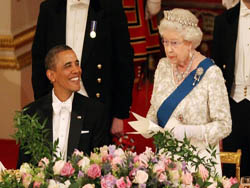
A series of unilateral concessions to Washington without reciprocal steps of Havana looks almost like a surrender to the Americans. But it’s a matter of priorities. Instead of a demonstrative punishment of the Cuban regime, the U.S. chose to invest in a long, but quiet transformation of Cuba into a normal state
These days Cuba executed by the magnanimity of the winners. Cubans are very proud to have persevered in the battle with the mightiest power in the world, but at the same time the loss of war time so clearly visible in the glass Windows of old Havana, to gloat at the loser doesn’t want to. On the contrary, want to forget the former claims to hang around the island until recently hated American flags and without memory to fall in love at a visiting American President, who seems ready to give them long-deserved universal prosperity, not demanding anything in return.
How to invite the President
The recent steps by President Obama in relations with Cuba really looks almost as one-sided capitulation. The last year Washington repeals ban the ban, a sanction for sanction, and Castro was not going to answer at least something symbolic. On the contrary, only reminds us, what has been done is, of course, very nice, but until the end of the list is still far.
Even when the American President is once again entangled in its own red lines, the Cuban leadership sees no need to come to the aid of his partner. Just three months ago, in December, Obama in response to countless questions on unilateral concessions stated that he would go to Cuba only if there is clear progress with democracy and human rights. Progress was obvious, no beauty, no. Instead, two days before the visit, Cuban authorities detained prominent human rights activist, Elizardo Sanchez, and a few hours before Obama’s landing has arrested more than fifty people for what they tried to protest in the centre of Havana.
Only since the beginning of this year, human rights activists in Cuba had averaged about two and a half thousand political arrests. It is clear that on the occasion of rapprochement with the United States to Cuban dissidents became especially active and arrested them for several hours, not five years in the camps. But anyway – what would be so terrible have happened if a small group of activists was allowed a little protest on the occasion of the visit of the American President? In the end, these visits happen in Cuba time in 88 years, at stake is billions of dollars, and Obama would have been much easier to explain your trip, if Castro has made at least one little thing. But no, no concessions, they will.
And Americans really gave. Obama pulled the plug on its own terms three months old and they still came. Came solemnly, in three days, with his wife, children, mother-in-law and a huge delegation. Agreed on the first 88 years of the President’s visit to Cuba, and in fact generally the first in history, because in 1928, Coolidge came to Havana for the pan-American summit, and not specifically to the Cubans. Neighboring Dominican Republic has tried and indecent Pro-American dictatorship, and a decent, Pro-American democracy, and no U.S. President ever to him and have not arrived and is not going to. And rebellious Cuba – for three days, the world’s attention and without the slightest of steps forward.
To strangle in the concessions
In addition to the prestigious visit Washington for the last year covered Havana the flow of economic concessions. To Cuba became much easier to drive: it still needs special permission from the us authorities, and for travel purposes it does not give out, but you can write in the application that you have cultural exchange, and quietly go to rest – will not check. As a result, the number of Americans visiting Cuba in 2015 almost doubled to 160 thousand, and is already about 5% of the total tourist arrivals to the island.
Cuban businessmen were allowed to open accounts in American banks. Certain types of transactions between Cuba and the US can now be accomplished in us dollars. Restored mail service between countries. Autumn needs to start regular commercial flights. The American authorities gave permission to open first U.S. plant in Cuba – will collect tractors. American hotel chain Starwood, has agreed to open in Havana for two of their hotel. For 2015, the Ministry of Commerce gave American companies permission for a total of $4.3 billion for conducting business in Cuba. Of course, resolution is not real money, but still $4.3 billion is approximately the amount of annual Cuban exports.
Technically, the embargo against Cuba remains in effect and when it is withdrawn, is still unknown. But U.S. authorities have done in it so many exceptions and so willingly began to issue permits that in practice, it ceased to be a serious obstacle to doing business.
Response Cuba has done for the development of cooperation with the United States? Virtually no. Despite public promises, the Cubans did not cancel the visit even restraining a ten percent duty on all transactions in U.S. dollars. It was introduced when Americans were still quite enemies, and now petty greed does not give to part with it: taxes on U.S. investment – when they will be, and then live the currency is difficult to resist.
The same applies to the other obvious demand that the US allow American companies to hire Cubans without government intervention. Still does not work. The Cuban authorities for so many years traded with the labor of their citizens with a profit rate up to 90%, and hard currency, what to reforge now very difficult.
The Americans rejected, even at quite a seemingly charitable offer. Cuban authorities strongly object to spend on the island from Miami a normal Internet cable: we already have a good, ideologically correct cable from Venezuela, we have enough.
Without regime Change
And yet, when Obama promises in Havana Cubans your favorite change, it has to do a lot more ground than during its own election campaign in the U.S. in 2008. Because of numerous concessions from Washington, though they unilateral, benefit all involved parties.
Of course, these concessions temporarily strengthen the Cuban regime. A half-century of the Castro brothers tried to convince Cubans that they will be able to survive in spite of all embargoes and sanctions. And here it is, the victory; they stood, the US gave up and cancelled it yourself. In front of them almost sucking up, asking for a visit and in spite of their imperialist habits constantly emphasize that the Cubans themselves should determine their future – no outside interference and imposition. One of the main goals of the 1959 revolution in which nationalism was far more than socialism, finally achieved.
Now with the flow of American tourists and investments will come to Cuba’s economic growth, and again appears that Castro was right. All the troubles and poverty were not from incompetent management, but from the U.S. restrictions. Once the prohibitions were removed, life immediately began to improve. Continue with steady economic growth, population and unspoiled-oiled repressive apparatus of the Cuban regime won’t face serious threats to their own survival. Having lost an impressive stream of oil subsidies from Venezuela, the Cuban authorities thought to despair, but then Obama came to the rescue, saved her from defrosting food riots and shock therapy.
And then there is the question of priorities. What is the purpose of the US policy in relations with Cuba is to punish the harmful mode, or from its borders stable and adequate state? What would happen to Cuba if in a few years the death of the Castro brothers coincided with the bottom of the economic crisis caused by the loss of Venezuelan subsidies? Whoever came to power, who would started to make friends and how actively, which would have formed the flows of economic migrants? Of course, the Cuban regime and especially the top management would be very tight, but how many unpredictable problems it would create for the United States.
In fact, with the help of thawing relations between the U.S. began to invest in though, and a long, but peaceful and quiet transformation of Cuba from an isolated and impoverished dictatorship into a normal member of the international community. Because every extra dollar that fell on Cuba, strengthens the desire of Cubans to smooth relations with the outside world and increases their demands on their own power.
The Cuban authorities will, of course, to resist the too rapid growth of wealth: Internet and cable they don’t need, and public vayfay let it be, but only at several points and two dollars an hour, and all sorts of computers don’t need them to take – even for free. Foreign factories open, but little by little and with the participation of the state. And in the tourism sector local business should be only a small, hard limits on the growth in size.
But still the changes will happen much faster than we would like the authorities who are simply unable to provide and monitor the diversity of the modern economy. Despite the severe constraints in the private sector already employs about 25-30% of able-bodied Cubans. The rental service Airbnb apartments operates in Cuba less than a year, but there offer their apartments (and therefore have access to the foreign exchange income) 4 thousands of Cubans. Over the past year, managed to appear several independent online media that work much better and better than the clumsy official propaganda. But in points of public wifi, so people pay two dollars for an hour, and then give the connection another 20-30 users at a much lower price.
Educated, disciplined and very cheap labor force have made Cuba one of the most attractive countries for investment. The starting level is so low that catch-up growth to at least the neighboring Dominican Republic already promises huge returns on investment. All of these perspectives and for Cubans, and American business could be sacrificed for the sake of wrongly understood principle and be able to look at the agony of the Cuban regime. Fortunately, between punishment and stabilization chose the latter.








